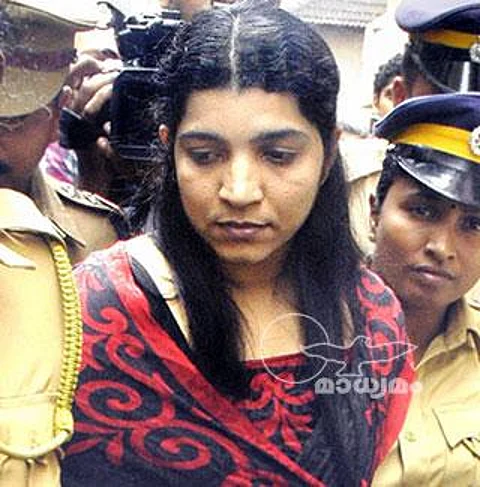

Haritha John and Sameera Ahmed | The News Minute | October 13, 2014 | 07:08 pm IST
Over the last week, four or five leaked videos of Saritha Nair, key accused in the solar panel scam in Kerala have been appearing online on websites and doing the rounds via Whatsapp.
Nair, who was arrested in June last year in relation to a scam promising people agencies for solar panels told the media after nude and semi-nude videos of hers went viral that she would take legal action against those who were circulating them.
“I did not watch it. I don’t know who has done it. This is to slaughter me,” said Saritha Nair to reporters.
If Saritha’s claims on the leaked videos are true, her story will come to fall as one amongst many such similar incidents taking place in India and across the world under the title ‘revenge porn’.
‘Revenge porn’ is the gradually growing trend of circulating sexual pictures or videos of former partners by people on and offline after their relationship falls apart, without their consent. There are a number of sites which exclusively cater only to this category. Even geographically, this trend is not just restricted to the cities. With almost every person owning a camera mobile phone, incidence of such crimes has picked up even in towns and villages.
Keeping in view this rising concern, the UK has decided to pass a law that makes ‘revenge porn’, a criminal offence. With the increasing practice of putting up intimate pictures of former lovers, the law to be introduced into criminal justice can make it a criminal offence punishable by up to two years in prison.
India too, with growing number of 'revenge porn' crimes being reported will have to start taking cases seriously and work at legislation to prevent growth of such crimes.
Indian laws and criminal offences
In India, however, while consumption of pornography is not illegal, the law only forbids its production and distribution. Section 67 of the IT Act imposes a penalty of imprisonment up to three years for publishing or transmitting obscene material in electronic form. The Act prescribes imprisonment up to five years for the same offence if the material in question contains "sexually explicit act or conduct". Section 66E inflicts punishment up to three years for whomever "intentionally or knowingly captures, publishes or transmits the image of a private area of any person without his or her consent, under circumstances violating the privacy of that person".
An important point that not many are aware of is that even circulation of such pictures and videos can be an offence.
Recently, even though the Section 66 IT Act is mired in controversy over its open-endedness, it raised further concern after Karnataka included many of the offences under the Information Technology Act under the ambit of the notorious Goonda Act. An act that till now allowed police to take into preventive custody anybody with a history of drug offences, bootlegging and immoral trafficking, will now also include internet offenders leaving the act wide open for misuse.